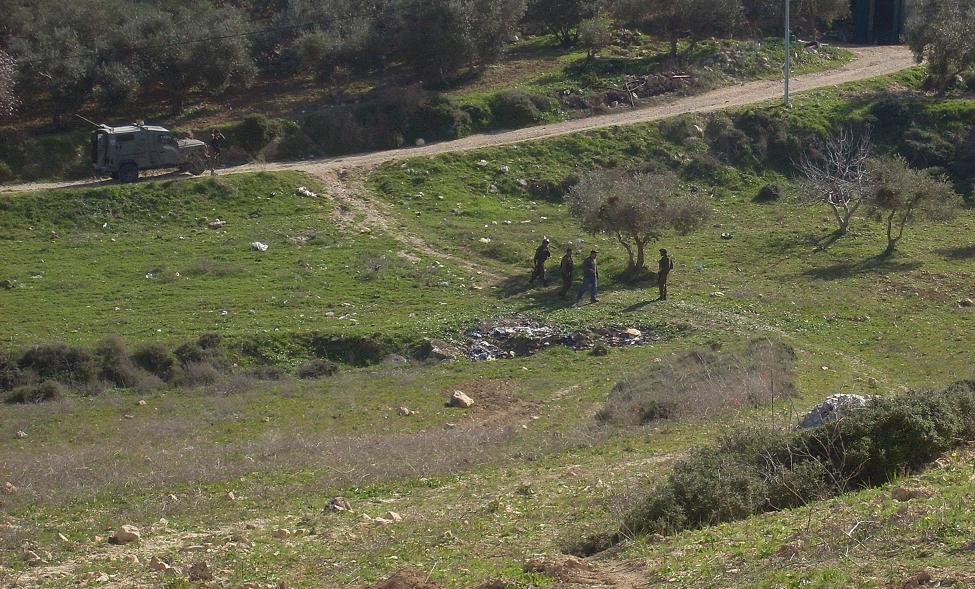Tag: Yitzhar Settlement
-
The most violent settlement in the West Bank encroaches on Asira al Qibliya
27 January 2013 | International Solidarity Movement, Asira al Qibliya, Occupied Palestine According to OCHA statistics Yizhar is the most violent settlement in the whole of the West Bank with 70 recorded incidents in 2011 alone. Every week there is at least one attack by Yizhar settlers in the six affected villages. Four months ago,…
-
Continued harrassment of the Nasser family in Madama
27 January 2013 | International Solidarity Movement, Madama, Occupied Palestine A month after unprovoked settler and army attacks, the victim of severe violence Mamun Nasser remains in Israeli prison. The arrest of yet another member of the Nasser family, Amir Nasser, shows Israeli army’s continued harassment in Madama. On December 18th the notorious security guard…
-
Big punishments for small hopes
by Haroun Zeitoun 26 January 2013 | International Solidarity Movement, Burin, Occupied Palestine This morning in Burin, the village that sits in the valley between the Yizhar and Bracha colonial settlements just south of Nablus, saw a small yet high-spirited group plant olive trees. The task was done within an hour and afterwards international activists…

